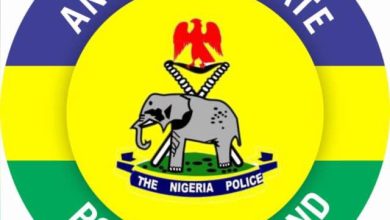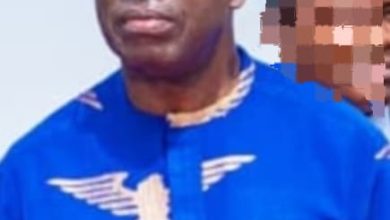
A Federal High Court sitting in Awka, Anambra State, has dismissed a suit filed by the Anambra State Government challenging the Economic and Financial Crimes Commission, EFCC’s power to investigate its finances, describing it as factually and forensically lacking in merit.
The State government had approached the court presided over by Justice Nnamdi Dimgba to determine whether under the Federal System of Government, with the constitutional doctrine of Separation of Powers, “the appropriation, disbursement and or administration of funds belonging to a State Government is subject to investigation by the EFCC being an agency of the Federal Government”
In a suit number FHC/ AWK/ CS/ 22/ 2022 filed by Government of Anambra State ( 1st Plaintiff) and Attorney- General of Anambra State( 2nd Plaintiff) against the EFCC( 1st Defendant) and Attorney – General of the Federation( 2nd Defendant), the Plaintiffs sought resolutions of the following eight questions:
1. Whether under the Federal System of Government established by Section 2 of the 1999 Constitution of the Federal Republic of Nigeria (as amended), and the doctrine of Separation of Powers established and provided by Sections 4, 5 and 6 thereof, the appropriation, disbursement and or administration of funds belonging to the Government of a State is subject to investigation by the 1st Defendant as an agency of the Federal Government.
2. Whether the power of the 1st Defendant, as an agency of the Federal Government, is not restricted to the matters set out in the Exclusive Legislative List contained in Part I of the Second Schedule to the 1999 Constitution of the Federal Republic of Nigeria (as amended).
3. Whether the appropriation, disbursement and or administration of funds belonging to the Government of a State are not matters within the Concurrent Legislative List contained in Part II of the Second Schedule to the 1999 Constitution of the Federal Republic of Nigeria (as amended).
4. Whether from a community reading of Sections 80, 120, 121, 125, 126, 128 and 129 of the 1999 Constitution of the Federal Republic of Nigeria (as amended) the power and function to conduct investigation into the appropriation, disbursement and or administration of the public funds/accounts of the Government of a State is not reserved for the House of Assembly of the State.
5. Whether from a community reading of Sections 80, 120, 121, 125, 126, 128 and 129 of the 1999 Constitution of the Federal Republic of Nigeria (as amended), the 1st Defendant can usurp the constitutional powers and functions of the House of Assembly of a State to conduct investigation into the appropriation, disbursement and or administration/management of the funds of a State Government, including the public funds/accounts of the Government of the State which have been appropriated by the State House of Assembly in exercise of its constitutional mandate.
6. Whether from a community reading of Sections 80, 120, 121, 125, 126, 128 and 129 of the 1999 Constitution of the Federal Republic of Nigeria (as amended), the 2nd Defendant can usurp the constitutional power and function of the House of Assembly of a State to conduct investigation into the appropriation, disbursement and or administration/management of the public funds/accounts of the Government of the State.
7. Whether from a community reading of Sections 80, 120, 121, 125, 126, 128 and 129 of the 1999 Constitution of the Federal Republic of Nigeria (as amended), the 1st Defendant can purport to investigate the appropriation, disbursement and or administration of the public funds/accounts of the Government of a State without any report or input from the House of Assembly of the State.
8. Whether the 1st Defendant acting by itself, its officers, agents, privies or otherwise howsoever can legitimately conduct and or continue with investigation into the public funds of the Anambra State which have been lawfully appropriated by the Anambra State House of Assembly without any report and investigation by the Anambra State House of Assembly.
The suit was a precipitate response to series of letters of invitation by the Commission sent to the Secretary to the State Government (SSG) and the State Attorney- General seeking the release of officials of the state government to offer explanations in an alleged case of fraudulent misappropriation of funds in respect of data collection exercise for the administration of subsidy to smallholder farmers and alleged case of Abuse of Office and Misappropriation of Funds.
In his judgment, Justice Dimgba stated that the EFCC has constitutional powers to investigate any act of economic and financial crime in any part of the country, stressing that neither the authorities of a State’s House of Assembly nor Auditor- General of a State preclude the Commission from performing its mandate as contained in the Constitution.
“In my view, the questions posed is at large… Is the EFCC a federal agency exclusively for all purposes, or is it both a federal agency and a state agency for some other purposes? It all depends on the context to which the question has been posed.
“In the context of the case at hand, which is whether it is legitimate for the EFCC to commence investigative activities against the named officials of Anambra State Government as contained in Exhibit 1 concerning the manner of the management and utilization of the public funds of Anambra State, the question posed must be answered against the Plaintiffs and the corresponding reliefs sought denied”.




